May eNews
The Suja & Dzaw Conversation on Climate Change in Bhutan- Impact and Response
Researchers, reporters, and students gathered at the College of Natural Resources for The Druk Journal: Suja & Dzaw Conversation on Climate Change in Bhutan on 8th May. Moderated by the journal’s editor, Dasho Kinley Dorji, the session marked the launch of The Druk Journal’s 21st issue, which featured 15 in-depth articles addressing various dimensions of climate change. The conversation brought together diverse voices to reflect on Bhutan’s evolving role in global climate leadership.
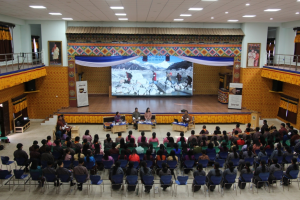
Key highlights included an alarming climate projection presented by Dr Singye Dorji, Chief of the National Centre for Hydrology and Metrology, and the introduction of the G-Zero Initiative by Tashi Choden, Planning Officer at the Office of the Prime Minister and Cabinet. The G-Zero Initiative is a global alliance of carbon-negative and carbon-neutral countries, namely Bhutan, Madagascar, Panama, and Suriname. Participants discussed ambitious plans, including hosting the first G-Zero Summit and establishing a permanent secretariat in Bhutan. The dialogue also brought to light urgent concerns raised by Ms Yangyel Lhaden, a journalist who reported on the hardships faced by the most climate-vulnerable communities. Additionally, Pema Eden, a faculty member at the College of Natural Resources, reflected on the spiritual and ecological consequences of melting glaciers on these communities.
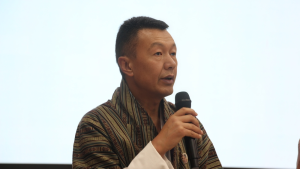
The event underscored the critical need for stronger community engagement, shared responsibility, inclusive planning, and increased climate financing. Together, these elements are essential for building a sustainable future grounded in equity, resilience, and coordinated action from the local to the global level. The 21st issue of The Druk Journal and the Suja & Dzaw conversation were supported by the Karuna Foundation and the Bhutan Foundation.
Situation Analysis for Community-Based Integrated Programming in Chhukha and Dagana
Continuing Bhutan’s integrated approach to inclusive development, the Bhutan Centre for Media and Democracy (BCMD) successfully concluded the remaining consultations of Children and Youth for Chhukha and Dagana, over consecutive weekends from 2nd May to 11th May 2025.
Following the consultation with children aged 13-17 in April, the second round of consultations for Chhukha with young people aged 18 to 24 from the gewogs of Doongna, Bongo, and Getena convened on 3rd and 4th May at the Gedu College of Business Studies. Similarly, the final consultation for Dagana was held at the Professional Development Centre in Tsirang on 10th and 11th May, engaging both age groups, 13 to 17 and 18 to 24, from the gewogs of Khebisa, Lajab, Tashiding, Tsankha, and Karna. The sessions were conducted simultaneously, with the BCMD’s Executive Director facilitating the consultation for participants aged 18 to 24, and an external consultant, Dr. Chencho Lhamu facilitating for the group aged 13 to 17.
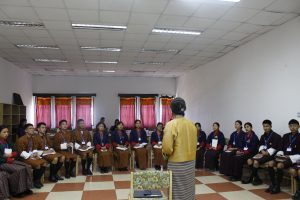
The consultations adopted an inclusive, participatory approach to ensure, as best, representation of students, out-of-school youth, and young people living with disabilities, across different socio-economic backgrounds who were identified by respective schools and local leaders. Discussions were centred on six critical themes impacting youth and their communities, namely: Education; Health and Hygiene; Social Protection; Poverty; Climate Change and WASH; and Participation. Using interactive tools such as focus group discussions, thematic presentations, Problem Tree Analysis, and the Frequency-Severity Matrix, participants discussed issues from their perspectives and lived experience, observations, and knowledge as they explored root causes of challenges and proposed practical, experience-based solutions.
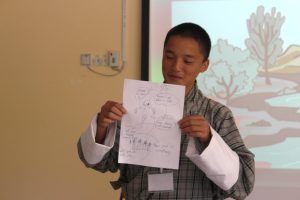
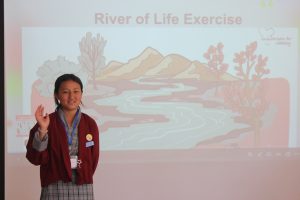
The findings revealed significant awareness and access gaps between rural and urban youth, in all six themes identified, while at the same time also bringing attention to other issues such as alcohol usage, prevalent norms in their respective communities, the need for tactical support for young people and others living with disabilities. These findings reinforce the need for inclusive dialogue and the importance of targeted policy interventions serving the needs of the communities, families, and young persons. Insights gathered from these consultations will be used in informing future programming and policy development, further strengthening Bhutan’s commitment to inclusive, youth-driven development in these priority districts.
We thank UNICEF for the support.
